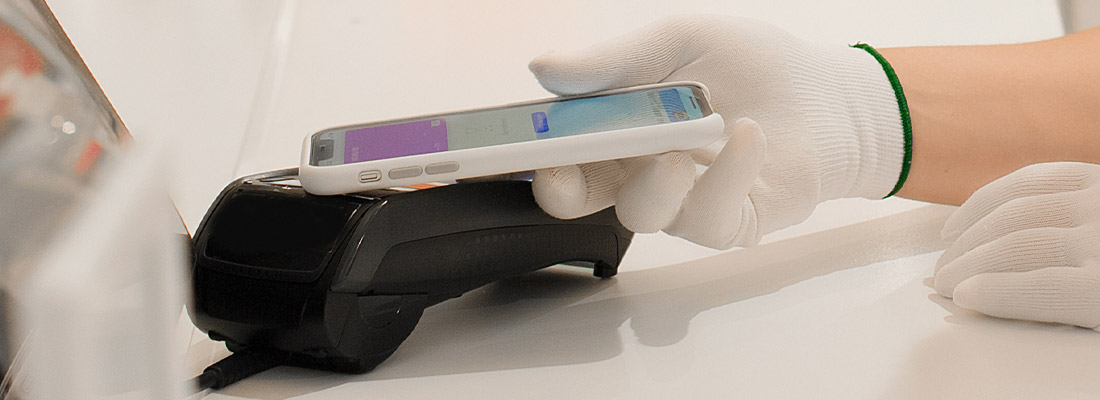Choosing POS and Ecommerce Tools for NetSuite
NetSuite is one of the most adaptable and robust cloud-based ERPs on the market, giving you a unified management suite with which to run your business. This adaptability is especially important for integrating NetSuite with legacy or third-party solutions, such as point-of-sale (POS) systems and ecommerce tools.
The decision of whether to use legacy or third-party systems does not have to be made before your NetSuite implementation. NetSuite scales well, and although you can do several implementations in one “big bang” approach, you can also do it in a stair-step fashion by replacing your ERP first and adding a POS or ecommerce later.
Let’s look at some important factors when deciding about POS and ecommerce integrations with NetSuite.
POS Solutions for NetSuite Integration
NetSuite plays well with many third-party POS systems and, as stated above, a POS doesn’t have to be integrated immediately when you implement NetSuite. But if you do decide to implement a POS right away, be sure to think ahead in terms of what you need for its function and scalability. That way, you don’t go through an entire POS implementation and then have to repeat the process in a few years when the system doesn’t scale with your roadmap or growth goals.

Check your volume needs
Sales volume and transactions per hour should be two of the biggest factors in your decision about whether to stay with a NetSuite POS or choose a third-party solution; as well as whether to integrate now or integrate later. How often are you pulling up items, scanning them or helping a customer pay for them? Can the POS update inventory in NetSuite, or will you have to do a bunch of workarounds?
Small or boutique retailers may opt for a POS with specialized hardware, such as contactless options for in-store purchases. A large retailer with a higher sales volume may want a workhorse-style POS that runs on robust hardware.
You may also want to conduct a value chain assessment or pain point analysis to determine the overall ROI of a new POS. What capabilities would you get with a new POS? What business objectives would a new POS help you meet and how could it improve the customer experience?
Understand upgrades
If you choose to integrate a third-party POS with NetSuite, be aware that NetSuite is a cloud-based platform that has mandatory upgrades twice each year. This means that any custom integrations will need to be tested and potentially updated for each NetSuite release. Your integrations will need feeding and watering to ensure continued functionality!
Be aware of the time and resources needed to accomplish this on a continual basis, and whether you have those resources on your own team, via a third-party solution provider, or with your NetSuite implementation/support provider.
Know your network strength
If you have a cloud-based POS, you need a really reliable internet connection – especially during high volume times like Black Friday. Ideally, look for a POS with robust offline capabilities in case your connection goes down. Point-of-sale solutions can vary widely with their offline capability, so this needs to be evaluated carefully.

User adoptability and the shopper experience
It’s fun to shop for new software and get excited about the bells and whistles – we get it! But keep the end users in mind. What do they need to do their job? What’s their attitude toward learning new technology and their patience for training? The best software in the world can’t do its job if user adoptability is poor, so the POS you choose for NetSuite should be one your users can learn relatively easily and comfortably.
Similarly, a POS that has to be bolted onto NetSuite may not carry everything over. Once you pull the plug from your old POS, it doesn’t always plug into something new. This could cause you to lose capabilities that effect the customer experience.
Ecommerce Solutions for NetSuite Integration
NetSuite SuiteCommerce and SuiteCommerce Advanced are ecommerce solutions that give organizations out-of-the-box web store, order management, inventory and accounting capabilities, with the latter solution offering more capabilities and customization options.
Choosing whether to add these to your NetSuite ERP, or whether to go with third-party or in-house options, requires careful consideration.

Keeping your legacy ecommerce solutions
We’ve worked with many companies and organizations that love their website or ecommerce tools, and they don’t want to give them up when implementing NetSuite. Performing complex NetSuite integrations with existing/live ecommerce platforms is something we excel at, but it’s only part of the equation. The real test comes later.
As mentioned above, NetSuite updates regularly so you need to make sure your ecommerce solutions will continue to operate with each of these updates. If you keep your non-NetSuite website, your IT team will need to manage integrations and upgrades to keep the business running smoothly. One upgrade that’s not properly addressed could threaten significant downtime of your ecommerce platform.
Watch for security issues
Bolting together different ecommerce solutions may cause security problems in the future if the solutions don’t meet NetSuite’s evolving security requirements. For example, the ecommerce platform Magento had to sunset last year because it couldn’t meet NetSuite (and others’) security demands. If you stick with an older solution, make sure it’s got a stellar security reputation and is committed to meeting industry standards and regular updates.
Get an Alliance Partner who Knows NetSuite Integrations
A true omnichannel customer experience is when your POS, ERP and website are in sync, and this is most easily (though not exclusively) achieved with a single platform like NetSuite. You won’t be able to offer services like buy online/pick-up in store without this synchronization. Likewise, your company’s IT infrastructure is at its most efficient and optimized when it’s a fully integrated environment.
That said, NetSuite’s great flexibility allows it to work well with third-party POS and ecommerce tools. If staying with a third-party solution is right for you, make sure your NetSuite Alliance Partner has deep experience with NetSuite integrations.
Here at BTM, we’ve done nearly every type of integration, from straightforward to complex. We know how to successfully execute POS, ecommerce, contactless payments, EMV and credit card integrations with NetSuite. We’ve also moved customers to a fully unified NetSuite platform that flipped their sales from 90 percent in-store to 90 percent online. If you’re not sure what to do, we can advise you on what to consider to make the best decision.







